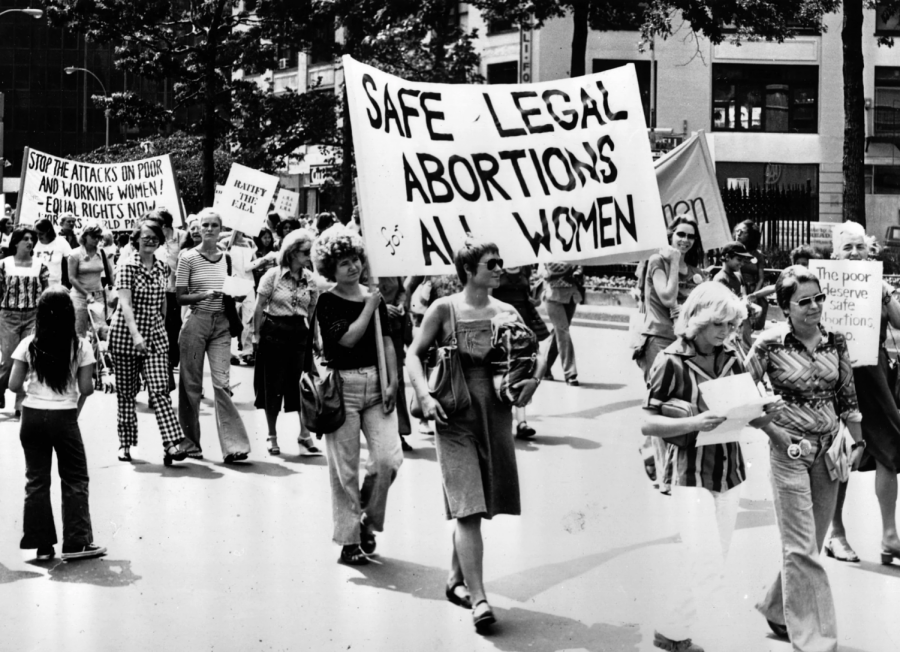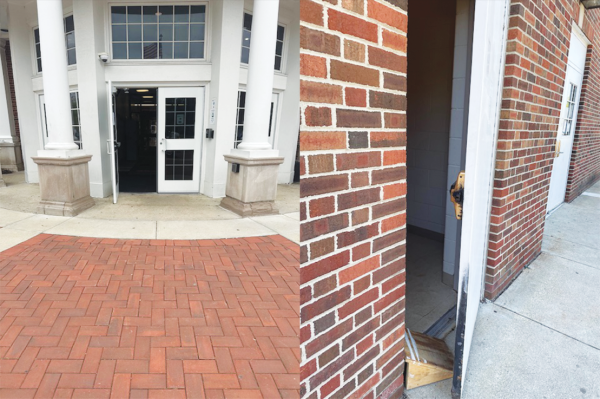Reproductive Rights Are At Stake, Yet Again
In Texas, a bill that will ban abortions after six weeks, before women even know that they’re pregnant.
Yet again, the rights of women to have autonomy over our own bodies is being challenged. The Supreme Court refused to block a bill that would severely limit the access to abortion in Texas. The new law bans abortions after 6 weeks of pregnancy, well before many women even know that they’re pregnant.
In 1973, Roe v. Wade decided that women should be able to have the option of abortion, without excessive restriction. This new law greatly challenges Roe v. Wade, as it allows excessive restrictions surrounding abortion. These excessive restrictions will have severe consequences, leaving more people without the option of safe and accessible abortions.
The law also allows private citizens to sue abortion providers, as well as other private citizens, who aid an individual in receiving an abortion after 6 weeks, “(including by paying for it) regardless of whether they know the abortion is prohibited under the Act, or even intends to engage in such conduct,” states Justice Sotamayor, dissenting in Whole Women’s Health v. Jackson. The law empowers citizens to become “vigilantes,” to essentially take the place of the government in enforcing these restrictions, therefore strategically avoiding judicial review. It also makes no exceptions for cases of rape or incest, and only a very narrow exception in the case that the mother’s life would be at stake.
Texas lawmakers, who have yet to allow the mandate of masks in schools, see it more fit to police people with uteruses, which includes not only women, but non-binary individuals and transgender men.
“Pro-life” lawmakers do not truly care about life, as they refuse to allow the enforcements of safety protocols that can help reduce exposure to COVID-19. If these lawmakers are truly “pro-life,” shouldn’t they care about the 648,000 Americans who have passed away due to COVID-19? Why don’t they seem to care about the women who have died due to unsafe abortions? The truth of the matter is that placing more restrictions on abortions does not do what people think it will do. Restrictive laws and bans do not decrease the amount of abortions that occur, they just replace safe abortions, forcing many to seek less safe options, such as the methods women used before abortion was legalized. Women were forced to use fatal and dangerous methods of terminating a pregnancy such as using a coat hanger or throwing themselves down the stairs.
It’s likely that other historically red states, like Ohio, will look to pass restrictive abortion bans, like Texas succeeded in doing. If laws similar to this one continue to be applied throughout the nation, people who may need an abortion will not have the right to make that difficult choice. I would not have that choice, nor would I be able to assist someone else who might need that choice. I may not be able to even assist them in making that choice, whether it be giving them a ride or helping them pay for the procedure, for fear of legal repercussions.
It has been 48 years since the historic decision of Roe v. Wade, yet we are still struggling to maintain autonomy over our own bodies. There’s something truly jarring about the second largest state in the United States being able to restrict access to a medical procedure.
The bottom line is that, regardless of how people personally feel about abortion, people need access to safe abortions. Personal beliefs should not overpower the bodily autonomy that everyone deserves. Restating what has been chanted over and over for years: my body, my choice.
Comment using your Facebook, Yahoo, AOL or Hotmail account









